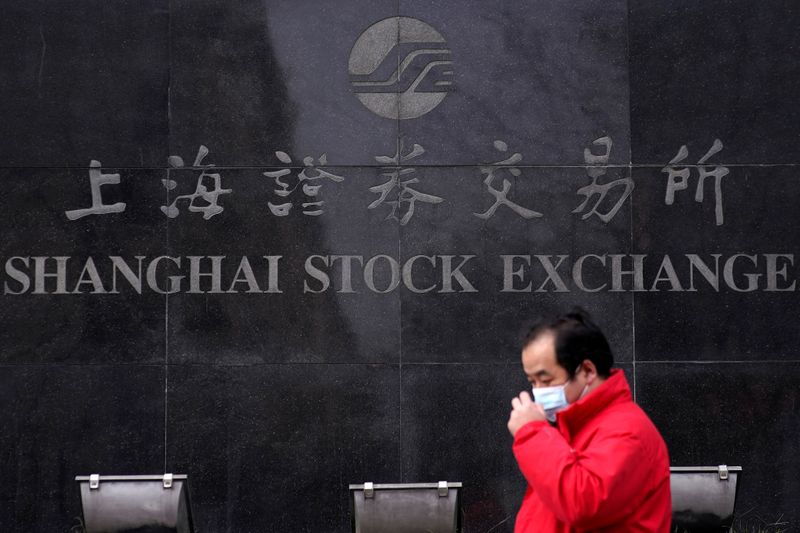This post was originally published on this site

Investing.com — Most Asian stock markets retreated on Tuesday amid heightened fears of a global recession this year, while mixed economic growth data from China also brewed more uncertainty over the timing of a recovery this year.
China’s Shanghai Shenzhen CSI 300 and Shanghai Composite indexes fell 0.3% and 0.4%, respectively, after data showed that the country’s economic growth slowed sharply in 2022 from the prior year.
Economic activity still expanded at a better-than-expected pace during the fourth quarter. This, coupled with positive readings on industrial production and retail sales for December, showed that some facets of the world’s second-largest economy were beginning to recover.
But uncertainty over a bigger recovery persisted, given that the country is grappling with its worst yet COVID-19 outbreak.
Other China-exposed stock markets traded in a flat-to-low range. The Taiwan Weighted index moved little, while South Korea’s KOSPI and Hong Kong’s Hang Seng index shed 0.8% and 1.1%, respectively.
Broader Asian stocks retreated amid renewed concerns over a global recession. A World Economic Forum survey showed that two-thirds of the economists polled expected a recession this year, while a separate survey of business heads by PricewaterhouseCoopers also posited a glum outlook for the economy this year.
Asian markets are likely to see extended losses in the event of a recession, given that foreign capital flows into the region are likely to dry up in such a scenario. An economic slowdown in major economies also threatens to spill over into regional markets.
Focus is now on the fourth-quarter earnings season, with markets looking to gauge whether worsening economic conditions dented corporate profits.
But on the other hand, some Asian markets benefited from improving economic conditions. India’s Nifty 50 and BSE Sensex 30 indexes were among the few outliers for the day, rising 0.5% and 0.8%, respectively, after data showed wholesale price index inflation eased more than expected in December.
The reading portends less pressure on the economy from rising prices, and is likely to invite a less hawkish stance from the Reserve Bank. But separate data showed that India’s trade deficit widened further in December.
Japan’s Nikkei 225 index rose 1.2%, bouncing back from steep losses over the past two sessions. Focus is now squarely on an upcoming Bank of Japan policy meeting, with traders fearing any more unexpectedly hawkish signals from the central bank.

